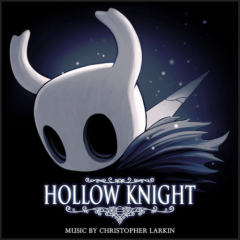-
Posts
3,919 -
Joined
-
Last visited
-
Days Won
36
Reputation Activity
-
 AngelCityOutlaw got a reaction from HoboKa in Not cool bro panel.
AngelCityOutlaw got a reaction from HoboKa in Not cool bro panel.
I feel this is a relevant example.
Not personally a fan of the arrangement myself; I like Alex's other remixes better, but every judge commented on or alluded to being impressed with Hollywood sound of it.
Fair enough. Alex has a pretty good setup worth thousands. I know he has Metropolis Ark, Olmpyus (?) choir, cinematic strings, lots of percussion libraries, has received some of Keep Forest's stuff like Evolution Atlantica for free, etc. So, we know he has no shortage of great sounds to work with.
I wonder if, in the last 3 - 5 years or so, there are any remixes in this trailer-music style that were made with something like cheap or free soundfonts and were approved? Perhaps it's not a totally fair challenge since I doubt they get a whole lot of trailer-music submissions, but the point stands.
Still, I have my doubts the panel would have passed this track if it were arranged with soundfonts or sibelius.
-
 AngelCityOutlaw got a reaction from HoboKa in Not cool bro panel.
AngelCityOutlaw got a reaction from HoboKa in Not cool bro panel.
Right, but no one said you didn't.
The point Jorito raises is:
In my experience, what he's saying here is true.
A few years back, I had a remix rejected because the orchestral parts were made with admittedly crap samples (all I really had at the time).
If I had said it was supposed to sound like a PS1 game, would the judges have been bothered by it? Perhaps not, and if not, then if a mix were to be rejected primarily on the basis of the sequencing sounding phony, then in many cases you're ostensibly telling the user that they need to invest in more capable sounds (realistic sequencing is pretty easy with most modern libraries) as attaining the necessary realism with what they currently have may not be possible. Meanwhile, in another mix stated to be in vain of old "orchestra" scores, noticeably fake sequencing would not be considered a problem because of the context.
My point, is that if retro-style tracks with intentionally phony sounds are acceptable and mixes like this are popular, then unintentionally phony sounding ones should be acceptable too if the piece is still good — I just don't see the harm in it, personally.
-
 AngelCityOutlaw got a reaction from HoboKa in Not cool bro panel.
AngelCityOutlaw got a reaction from HoboKa in Not cool bro panel.
The issue that you then face though is a matter of deciding context wherever it suits you.
You can create an awesome composition with those PS1-era sounds, in an "epic orchestra" style, but obviously fail to achieve the actual sound of modern movies and games. If you say to the panel "well, it's supposed to sound like a PS1 game", that could be the difference between a YES and a NO, even if it you really did intend for it to sound like 2017 Harry Gregson-Williams and instead got 1994 Uematsu.
Those old samples may not sound real, but still sound good. Here's an example of Sibelius' Note Performer add-on.
I, for one, think that's great even if not ultra-real.
Which is why I say that the context here doesn't really matter. If it sounds like a PS1 game like the above, but it's still a great piece, most people will listen to that remix (of VGM) and think that it sounds like a video-game soundtrack. Again, I doubt this will turn most listeners off. I just don't think that it ever makes sense to reject a piece for not sounding "realistic" in a community based on remixing music that didn't sound real at all.
If the only advice that a track can really be given is "it needs better samples", you're really just saying "you need to spend more money" and I don't see why anyone would do that for the sake of a hobby and getting YES'd by a panel of judges so you can get posted on a website.
Myself? It doesn't matter to me if OCR took a hardline "it must sound like the best" stance, but I also don't think there is any real harm accepting something on production so long as the samples aren't completely terrible and are in line with either modern video game soundtracks or retro throwbacks — not everyone can get the former, but the latter can be achieved by everyone.
-
 AngelCityOutlaw got a reaction from HoboKa in Getting work in music industry
AngelCityOutlaw got a reaction from HoboKa in Getting work in music industry
The only thing I can add is composing for production libraries or original scores for different kinds of media.
In either case, orchestral and hybrid music is the most in-demand, but also the most expensive to create (those high-end sample libraries and requisite computing power don't come cheap) and may not be your thing(?)
Regardless, stock music that is used in advertising can be very lucrative if you have a popular track and/or get placements in big advertisements. Probably the biggest are movie trailers, but the trouble there is that most of this music requires you to be, at once, terribly generic and still somehow different enough from the convention to stand out. Competition is fierce.
Best you can do is find libraries like position, liquid cinema, etc. and submit a portfolio when they are accepting them and see what happens. You can try doing it yourself through places like AudioJungle, but these places generally offer mediocre deals (to put it lightly) and there is so much crap that it's hard for a potential licensing opportunity to find you: It's basically where people who failed to get into the big leagues go to die; harsh as it sounds.
The next one is composing for films, games, TV. I'd seriously consider it since you're in BC and TV and film are popular there; I'm actually working on a short film from Vancouver atm.
Of course, finding paid gigs can be tricky and you'll have to accept garbage gigs that pay nothing in order to get anywhere at all in the beginning — those IMDB credits matter. The only way to get into this is to get out there and meet people and other composers in the business (perhaps most gigs come about by referral!), perhaps become an assistant to an established composer, etc...all combined with a considerable amount of luck.
I know that, obviously given this site, video games are popular and I've seen many articles that brand them as the great frontier of opportunity for composers, but it has been my experience for the better part of a decade now that this is quite far from the truth, I'd actually argue that it's more difficult to get into, but I'll not elaborate so as to not go on a huge rant. I wouldn't focus on it specifically, is what I'm saying.
-
 AngelCityOutlaw got a reaction from HoboKa in Parts in games so difficult they made you stop playing
AngelCityOutlaw got a reaction from HoboKa in Parts in games so difficult they made you stop playing
Not difficult, the opposite, but MVC: Infinite
Tried the demo for it today
My god that game is crap. Horrible graphics, same awful MVC3 high-contrast artstyle, looks like a port, gameplay is extremely dumbed down, only two characters instead of 3, atrocious voice acting, cringiest story I've ever seen, 1-button super combos, 1-button normal combos, and already the worst roster in the history of the genre.
First time I've ever rage quit a game just because it sucks so bad.
They're going to charge 74.99 for this shit.
-
 AngelCityOutlaw got a reaction from HoboKa in Not cool bro panel.
AngelCityOutlaw got a reaction from HoboKa in Not cool bro panel.
Basically, their is a remix called "big bad koopa dubstep" that was a direct post by DJP back in 2011. There was a big argument about whether or not it was really up to OCR standards.
Even on YouTube, it's the most negatively-rated remix I'm aware of coming from this community.
Keep in mind I don't really have any dog in this hunt, but:
If I were to make any suggestion, it would be that j00jment of remixes should be more about whether or not the track is close enough to modern production standards (using quality sounds) and composition/arrangement standards to be acceptable to listeners and not whether not it fits the "OCR philosophy" so to speak.
I know this will sound like it has a douchey tone to it, but trust me; it's just because of the cold lack of emotion text has and my rather crass way of wording things =P
For example, From Gario:
Nobody cares about what the judge's "tastes" are; they should not be a factor as much as possible and the number of people who will care about 22 seconds being copy-pasted in electronic music will be close to zero when it's out there in the world.
From Mindwanderer:
Here is a top-20 charting, funky electronic track used in countless video games, films, trailers, etc. which has way more than a third of it being copy-pasta repetition.
What's good for the masses isn't good enough for OCR, though? Please.
There is clearly a riser that leads up to the end and there are no shortage of similar tunes that end exactly like this or otherwise with an abrupt ending and it hasn't harmed platinum sales.
The track doesn't need EQ; it needs superior part-writing to get rid of the clutter, could probably benefit from some more "modern" sounds, harder-hitting drums and more low end.
Where I'm going with this?
None of this track's shortcomings seem like dealbreakers and I don't think it's any skin off OCR's ass if it were just approved. Instead, it's rejected and the mixer will have to go back and try to remold it the way you want it and wait probably a year or more before they find out if they must wait another year to see it on your YouTube channel. You may as well have just approved it: I'm certain there would be no shortage of people who enjoy it, it would encourage the mixer to continue mixing for the site, and whatever shortcomings it has aren't going to sully OCR's standards and reputation.
You've approved a whole lot worse.
-
 AngelCityOutlaw got a reaction from HoboKa in Not cool bro panel.
AngelCityOutlaw got a reaction from HoboKa in Not cool bro panel.
Sounds to me like their rejection was justified by their usual standards.
It's not about whether or not it "sounds bad"; it's about whether or not it sounds the way the judges want it to and in varying degrees of accordance to the site's ideals. It's argued that this is about quality assurance — which I'm sure it is, to a large extent — but personal bias absolutely plays a part because it does in literally anything that is put before a panel of judges. Nobody should take approval or rejection from OCR seriously, IMO.
That being said, I don't see why people bother to submit at all when it takes over a year to get evaluated and by that time, the user has either moved on and improved or given up; kind of defeats the purpose of providing useful feedback to n00bz so they can get approved. You may as well just post it on soundcloud or YouTube yourself.
"But not as many people will hear it!" — maybe, but I don't see why anyone cares about being a celebrity VGM-remixer; if there even is such a thing.
Lastly, to give an example of where I think the problems lie:
A few months ago, a remix I did with Timaeus for Metroid's anniversary got approved. It had been so long that I forgot we even did the mix. Long story short: Tim was in a bit of a bind since he was off to grad school and at the time, he was the only one of us with a proper string library (I've since acquired CS2). Admittedly, the strings didn't sound great and all of the judges pointed it out.
For most people, those dodgy strings would've been a no-go and got them a "Resub". I mean, you'd think that two guys who have two previously approved collabs with the one member having many, many mixes on the site that such a mistake should be inexcusable, right?
That's my only criticism — aside from the wait time, but people have lives — of the how the panel works: It's long been my observation that "established" remixers are often shown more leniency in fuck ups than noobs are when it should be the other way around.
But then, some of you may remember the Big Bad Koopa Dubstep controversy of '11.
-
 AngelCityOutlaw got a reaction from LuckyXIII in SNES Classic
AngelCityOutlaw got a reaction from LuckyXIII in SNES Classic
I find it funny how gamers tend to complain that the industry is out of ideas and there is nothing new,
but trip over themselves to get a relaunch of a nigh 30-year-old console.
-
 AngelCityOutlaw got a reaction from Uffe von Lauterbach in Underwater Ambience
AngelCityOutlaw got a reaction from Uffe von Lauterbach in Underwater Ambience
A cinematic, ambient track; my first real attempt at creating a piece of music with Cubase!
-
 AngelCityOutlaw got a reaction from Eino Keskitalo in Getting work in music industry
AngelCityOutlaw got a reaction from Eino Keskitalo in Getting work in music industry
The only thing I can add is composing for production libraries or original scores for different kinds of media.
In either case, orchestral and hybrid music is the most in-demand, but also the most expensive to create (those high-end sample libraries and requisite computing power don't come cheap) and may not be your thing(?)
Regardless, stock music that is used in advertising can be very lucrative if you have a popular track and/or get placements in big advertisements. Probably the biggest are movie trailers, but the trouble there is that most of this music requires you to be, at once, terribly generic and still somehow different enough from the convention to stand out. Competition is fierce.
Best you can do is find libraries like position, liquid cinema, etc. and submit a portfolio when they are accepting them and see what happens. You can try doing it yourself through places like AudioJungle, but these places generally offer mediocre deals (to put it lightly) and there is so much crap that it's hard for a potential licensing opportunity to find you: It's basically where people who failed to get into the big leagues go to die; harsh as it sounds.
The next one is composing for films, games, TV. I'd seriously consider it since you're in BC and TV and film are popular there; I'm actually working on a short film from Vancouver atm.
Of course, finding paid gigs can be tricky and you'll have to accept garbage gigs that pay nothing in order to get anywhere at all in the beginning — those IMDB credits matter. The only way to get into this is to get out there and meet people and other composers in the business (perhaps most gigs come about by referral!), perhaps become an assistant to an established composer, etc...all combined with a considerable amount of luck.
I know that, obviously given this site, video games are popular and I've seen many articles that brand them as the great frontier of opportunity for composers, but it has been my experience for the better part of a decade now that this is quite far from the truth, I'd actually argue that it's more difficult to get into, but I'll not elaborate so as to not go on a huge rant. I wouldn't focus on it specifically, is what I'm saying.
-
 AngelCityOutlaw got a reaction from djpretzel in Adding new instruments.
AngelCityOutlaw got a reaction from djpretzel in Adding new instruments.
Provided that your lines flow well (voice leading), and have a nice contour, it's mostly creative decisions.
One thing to consider, is that many instruments have a "golden register", a pitch range where they sound best. On the other side of the coin, some tend to sound awful in certain ranges. The only way to learn this is through familiarizing yourself with the instruments you want to use, as well as studying orchestration in general. So, be careful of that.
A great "trick", is to "lead in" to the melody from the previous bar. Say that the first real note of my theme is an A, in A minor. I could lead in to that from the previous bar with two eighth notes of E and G below it.
A good example, would be this piece:
So, it starts with that famous Celesta line, which is occasionally harmonized with itself. As the theme comes back "home", we get those fast string runs and that oboe trill @ 43 seconds that imitates an owl hoot for a few bars, and then the horns play the theme.
Note the second theme, starting at 1:35. It's played by the winds, and then is restated at 1:48 by the trumpets.
You'll notice in each case, that there is just one note that leads in to restatement of the theme. In the first part, the horns play that fourth below the first beat of the bar where the theme really begins.
In the second example, it may sound like the trumpets just "start", but if you listen, the exact same thing is happening as in the first example. It's just that the woodwinds play that note (harmonized) before the trumpets begin; so you get the same effect.
The music theory term for this, is an "anacrusis"
-
 AngelCityOutlaw got a reaction from Ridiculously Garrett in Newbie Needs Feedback
AngelCityOutlaw got a reaction from Ridiculously Garrett in Newbie Needs Feedback
Be careful with this.
The ipad's speakers are too small to reproduce the low-end frequencies, but a car stereo can easily give you the exact opposite problem — too much bass.
If you can, I'd recommend in investing in at least a good pair of headphones that will give you as "flat" as possible of a frequency response. I recommend the AudioTechnica ATH-M50x if you can't afford or don't have an ideal room for speaker monitors.
-
 AngelCityOutlaw got a reaction from Eino Keskitalo in Newbie Needs Feedback
AngelCityOutlaw got a reaction from Eino Keskitalo in Newbie Needs Feedback
@Silverpool So I'll try to provide a bit of an explanation and link to some resources.
You're a pianist, so that will make things much easier to explain.
I assume you know the notes on the instrument? Here is a chart.
• So all of the white keys, going from C to B, form the "C Major Scale". This gives you 7 notes to work with. A distance of two tones, counting the black keys too, is a "whole tone" or "whole step"; a distance of only one key between notes is called a "semi tone" or "half step." Since "C" is what we're using as the basis to create the scale, we will refer to C as the "tonic" or "root" note. Notice that between E & F as well as B & C, there is only a half step but no "sharp" black key. As such, there is no B sharp or E sharp. The distance between two notes is referred to as an "interval".
• The formula to create the major scale, in any key, starting from the root note, is: Whole step - whole step - half step - whole step - whole step - whole step
• Starting from any note you choose on the keyboard, this formula will give you the major scale for that key.
• Now, if you count three keys down from the "root note" of your major scale, you will get the minor equivalent. In the case of C Major, counting three keys down, the note is "A". So, all of the same notes as the Major scale, but instead is "minor". It has a different sound, trying playing all white keys from C to the next C note; then, try playing all white keys from an A note to the next A note, and you will hear the difference in sound.
Congratulations, you now know the musical scale used to create ostensibly all of western music!
But why is one major and the other minor, you ask?
The answer has to do with "triads" (three-note chords) that can be built from the "root" of the scale.
To form a "major triad", start from your root note, and count up four keys. This will give you the "third" interval of your root note; a "major third" specifically. From this major third, count up 3 more keys, and you will get the "fifth" of the root note. In C, this gives us C, E and G.
To form a "minor triad", start from your root note, and count up 3 keys. This will give you the "minor third" interval of your root note. From this "minor third", count up 4 more keys to get the fifth of your root note. In "A", this gives us A, C, and E — an "A minor chord." So, you count "4 - 3" to form a major triad, and "3 - 4" to form a minor triad. Easy, right?
• If we apply this formula to all of the notes available to us in the scale, we can form 7 basic triads. Starting with the root in C Major, we get:
C Major, D Minor, E Minor, F Major, G Major, A Minor.
You will notice that this is only six triads. The reason that the B triad is omitted, is because it is a "diminished" chord. If you use the counting formula, you will notice that F# is the fifth of B and NOT simply F. F is a half step lower; a fifth that has been lowered by a semi tone is considered "diminished" and a diminished triad sounds "dissonant" or unstable.
• Melodies, the "tune" of the song, are constructed from the scale as well. To harmonize a melody, all one must do is match the notes of the melody to chords they belong in. For example, a melody note of "C", in C Major scale, could be part of a C major triad, an A Minor triad, or an F Major triad, as the C note is present in all of them.
To practice this, try coming up with a simple melody using only quarter or half notes. For each note you play, play a matching chord with your left hand.
The practice of changing chords to a specific rhythm, is called a "chord progression" and certain chords "prefer" to move to certain other chords.
• Once you are comfortable with this, you can move onto more advanced subjects.
Including:
Creating basic chord progressions
Using notes not found in the current chord in your melodies
The harmonic series, or why you should use wider intervals in the lower register and closer intervals in the higher register.
How to smoothly change chords by using "inversions" (the notes of the triad played in a different order)
Extended chords and harmonies created by combining different intervals to create more complex chords
The seven church modes
and how harmony works when "fifth" and "fourth" intervals are stacked to create chords instead of thirds.
Hope this helps!
-
 AngelCityOutlaw got a reaction from Dextastic in Newbie Needs Feedback
AngelCityOutlaw got a reaction from Dextastic in Newbie Needs Feedback
@Silverpool So I'll try to provide a bit of an explanation and link to some resources.
You're a pianist, so that will make things much easier to explain.
I assume you know the notes on the instrument? Here is a chart.
• So all of the white keys, going from C to B, form the "C Major Scale". This gives you 7 notes to work with. A distance of two tones, counting the black keys too, is a "whole tone" or "whole step"; a distance of only one key between notes is called a "semi tone" or "half step." Since "C" is what we're using as the basis to create the scale, we will refer to C as the "tonic" or "root" note. Notice that between E & F as well as B & C, there is only a half step but no "sharp" black key. As such, there is no B sharp or E sharp. The distance between two notes is referred to as an "interval".
• The formula to create the major scale, in any key, starting from the root note, is: Whole step - whole step - half step - whole step - whole step - whole step
• Starting from any note you choose on the keyboard, this formula will give you the major scale for that key.
• Now, if you count three keys down from the "root note" of your major scale, you will get the minor equivalent. In the case of C Major, counting three keys down, the note is "A". So, all of the same notes as the Major scale, but instead is "minor". It has a different sound, trying playing all white keys from C to the next C note; then, try playing all white keys from an A note to the next A note, and you will hear the difference in sound.
Congratulations, you now know the musical scale used to create ostensibly all of western music!
But why is one major and the other minor, you ask?
The answer has to do with "triads" (three-note chords) that can be built from the "root" of the scale.
To form a "major triad", start from your root note, and count up four keys. This will give you the "third" interval of your root note; a "major third" specifically. From this major third, count up 3 more keys, and you will get the "fifth" of the root note. In C, this gives us C, E and G.
To form a "minor triad", start from your root note, and count up 3 keys. This will give you the "minor third" interval of your root note. From this "minor third", count up 4 more keys to get the fifth of your root note. In "A", this gives us A, C, and E — an "A minor chord." So, you count "4 - 3" to form a major triad, and "3 - 4" to form a minor triad. Easy, right?
• If we apply this formula to all of the notes available to us in the scale, we can form 7 basic triads. Starting with the root in C Major, we get:
C Major, D Minor, E Minor, F Major, G Major, A Minor.
You will notice that this is only six triads. The reason that the B triad is omitted, is because it is a "diminished" chord. If you use the counting formula, you will notice that F# is the fifth of B and NOT simply F. F is a half step lower; a fifth that has been lowered by a semi tone is considered "diminished" and a diminished triad sounds "dissonant" or unstable.
• Melodies, the "tune" of the song, are constructed from the scale as well. To harmonize a melody, all one must do is match the notes of the melody to chords they belong in. For example, a melody note of "C", in C Major scale, could be part of a C major triad, an A Minor triad, or an F Major triad, as the C note is present in all of them.
To practice this, try coming up with a simple melody using only quarter or half notes. For each note you play, play a matching chord with your left hand.
The practice of changing chords to a specific rhythm, is called a "chord progression" and certain chords "prefer" to move to certain other chords.
• Once you are comfortable with this, you can move onto more advanced subjects.
Including:
Creating basic chord progressions
Using notes not found in the current chord in your melodies
The harmonic series, or why you should use wider intervals in the lower register and closer intervals in the higher register.
How to smoothly change chords by using "inversions" (the notes of the triad played in a different order)
Extended chords and harmonies created by combining different intervals to create more complex chords
The seven church modes
and how harmony works when "fifth" and "fourth" intervals are stacked to create chords instead of thirds.
Hope this helps!
-
 AngelCityOutlaw got a reaction from Torzelan in OCR Cribs (the "Post Pics of your Studio Area" thread!)
AngelCityOutlaw got a reaction from Torzelan in OCR Cribs (the "Post Pics of your Studio Area" thread!)
Mirror, Mirror, on the wall
-
 AngelCityOutlaw reacted to Torzelan in OCR Cribs (the "Post Pics of your Studio Area" thread!)
AngelCityOutlaw reacted to Torzelan in OCR Cribs (the "Post Pics of your Studio Area" thread!)
ya i keep my acoustic in a laundry basket, what you gonna do about it
-
 AngelCityOutlaw got a reaction from Black_Doom in How to follow
AngelCityOutlaw got a reaction from Black_Doom in How to follow
Narcissism
What did you expect?
If people aren't "following" something, it's because they don't want to and it's not even particularly useful to be honest. There is also the matter of the forums being borderline dead — nobody is asking how to follow threads.
Therefore, this thread (and your choice of words) comes off as "Here's how painfully easy it is to follow threads, you idiots."
-
 AngelCityOutlaw got a reaction from Garpocalypse in Parts in games so difficult they made you stop playing
AngelCityOutlaw got a reaction from Garpocalypse in Parts in games so difficult they made you stop playing
You ever play Jet Moto 2?
The CPU are all playbacks of the best players they could find. As such, most of the CPU opponents have a near-perfect run.
Screw up even once and you're almost guaranteed to come in last.
Arguably one of the best, forgotten soundtracks in video games, though.
-
 AngelCityOutlaw got a reaction from pengwndude in DAW (Digital Audio Workstation) of choice?
AngelCityOutlaw got a reaction from pengwndude in DAW (Digital Audio Workstation) of choice?
It's actually cheaper than all of the other industry-standard DAWs even if you are releasing commercially. It's 60 USD if you make less than 20,000 a year from it (which most do) and only 200 USD if you make 20k or more.
Anyway, I can vouch for Reaper. I switched over to using it exclusively like...3 years ago now? Can't go back to anything else.
I do wish it had superior video playback, but nothing is perfect.
-
 AngelCityOutlaw got a reaction from HoboKa in Castlevania anime on Netflix
AngelCityOutlaw got a reaction from HoboKa in Castlevania anime on Netflix
I'd say IGN, of all places, put it best in saying (paraphrase) "When a show's biggest problem is that it's too short, you know it's doing something right."
-
 AngelCityOutlaw got a reaction from orlouge82 in Castlevania anime on Netflix
AngelCityOutlaw got a reaction from orlouge82 in Castlevania anime on Netflix
First video game adaptation to be "certified fresh".
The curse has been lifted, ladies and gents.
Adi Shankar came across as a bit of cocky douchebag in the days leading up to its release, but I suppose he's earned the bragging rights.
-
 AngelCityOutlaw got a reaction from Chernabogue in Castlevania anime on Netflix
AngelCityOutlaw got a reaction from Chernabogue in Castlevania anime on Netflix
First video game adaptation to be "certified fresh".
The curse has been lifted, ladies and gents.
Adi Shankar came across as a bit of cocky douchebag in the days leading up to its release, but I suppose he's earned the bragging rights.
-
 AngelCityOutlaw got a reaction from noTuX in Soundcloud's Possible Collapse
AngelCityOutlaw got a reaction from noTuX in Soundcloud's Possible Collapse
Orfium has been gaining steam in recent times; might want to check that out.
-
 AngelCityOutlaw got a reaction from Kenogu Labz in Soundcloud's Possible Collapse
AngelCityOutlaw got a reaction from Kenogu Labz in Soundcloud's Possible Collapse
and people said I was crazy when I nuked my stuff a week and a half ago.
Anyway, Soundcloud started to go downhill when they got rid of groups (because reasons), which were easily the best way to find new music and share your own; you didn't have to ostensibly resort to cold calling people to get a new follower. Especially if you just created an account — it would be like an anechoic chamber.
It would also help if I wasn't getting messaged and follows from at least one bot every day telling me about what a bad girl she's been lately.
-
 AngelCityOutlaw got a reaction from HoboKa in Soundcloud's Possible Collapse
AngelCityOutlaw got a reaction from HoboKa in Soundcloud's Possible Collapse
and people said I was crazy when I nuked my stuff a week and a half ago.
Anyway, Soundcloud started to go downhill when they got rid of groups (because reasons), which were easily the best way to find new music and share your own; you didn't have to ostensibly resort to cold calling people to get a new follower. Especially if you just created an account — it would be like an anechoic chamber.
It would also help if I wasn't getting messaged and follows from at least one bot every day telling me about what a bad girl she's been lately.











.thumb.jpg.63d872f8192aafd47fdb4c1e6ab60191.jpg)
